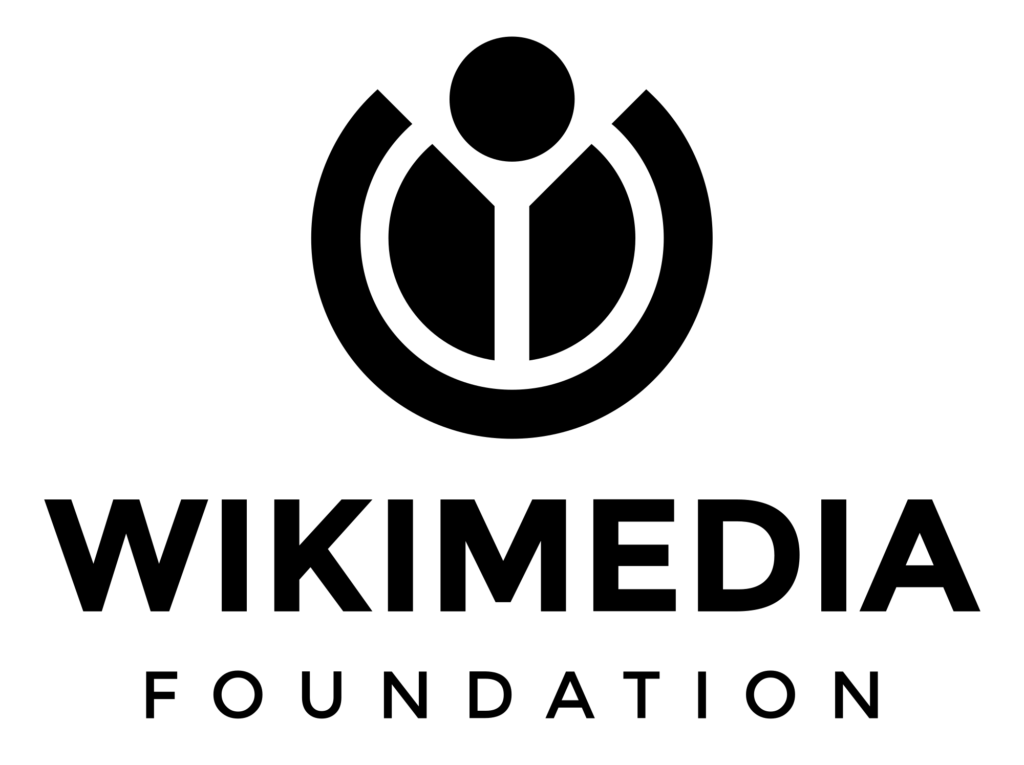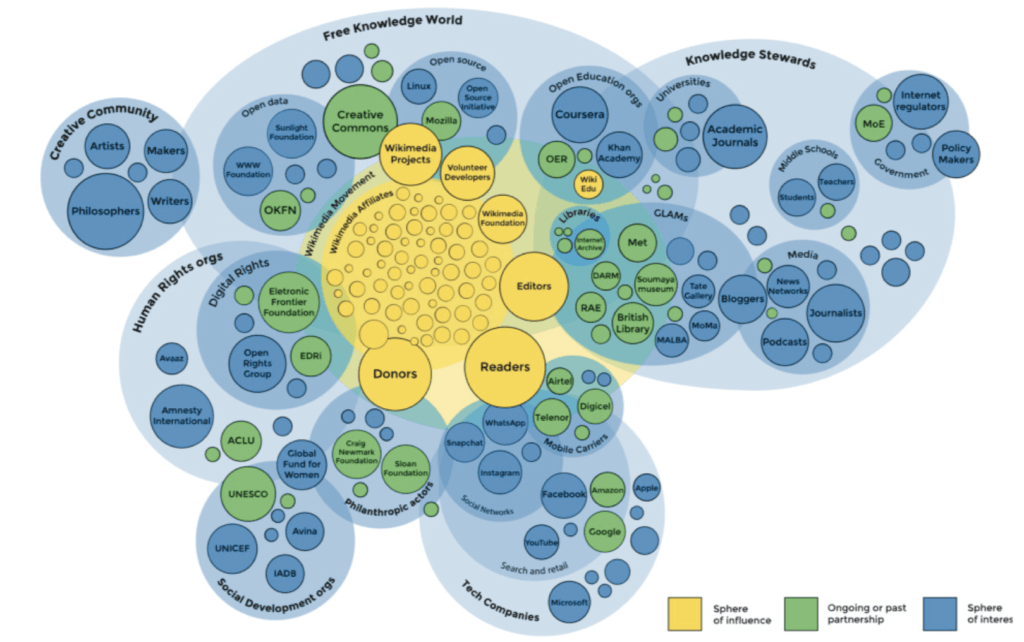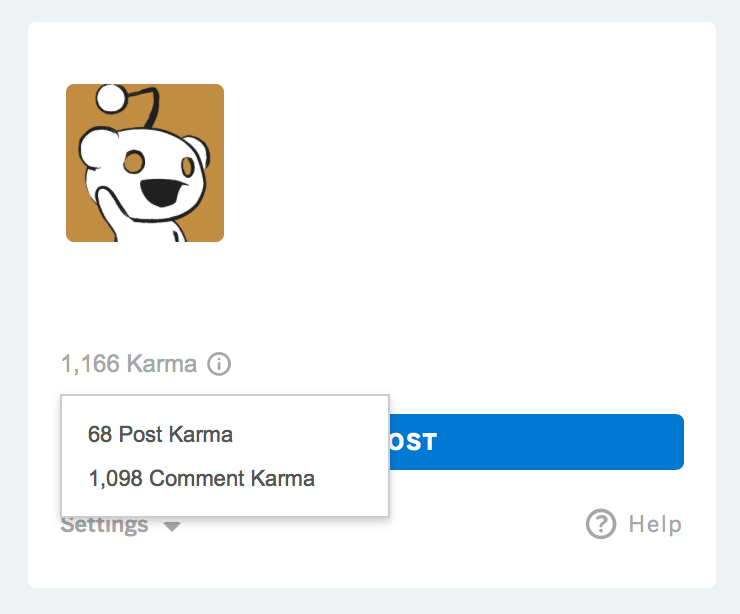It’s all open at Wikimedia Foundation

“Imagine a world in which every single human being can freely share in the sum of all knowledge.”

Figure 1: Wikimedia Foundation Logo
Open Innovation at Wikimedia Foundation
The Wikimedia Foundation [1] has revolutionized the art of open innovation through commons-based peer production [2], a means of socially driven production in which a large number of users collaborate in an egalitarian setting. The Foundation’s pilot project used an open reviewing system, but required experts in a field to compose and edit articles. However, Jimmy Wales, the founder, realized that this system is set up to fail, and decided to leverage open innovation on all fronts – composing, editing, reviewing, discussing about, and deleting articles, through ‘wikis’ [3][4]. Since then, open innovation has been a cornerstone of product development at the Wikimedia Foundation, and this new crowdsourcing model for content helped Wikipedia, and later, other projects of the Wikimedia Foundation (like Wiktionary, Wikibooks and Wikimedia Commons), flourish [5].
Participants in Wikimedia’s open innovation platform are generally motivated by the social value they provide to the community [6]. Open innovation establishes weak social ties, which increase the tenure of commitment to the project, as participants are free to contribute to the project at their own pace, and their other commitments are not impacted [7]. Network effects within the user community have further spurred both the volume and quality of participation. Newer users often contribute to content of lower quality. Paradoxically, this attracts veteran users because of the aforementioned social value they derive from editing this content, which raises its quality, and attracts more new users to participate, driving the volume up. This positive feedback loop helps improve the content generation and quality control processes at Wikimedia Foundation [8].
Figure 2: Where is Wikimedia today?
Can strategy be made open?
In addition to product development and process improvement, Wikimedia has successfully used open innovation to define and drive strategy in an attempt to further maximize stakeholder involvement, and consequent alignment of incentives of all stakeholders [9]. After successfully using open strategy to define a five-year strategic plan in 2011 [10][11], Wikimedia Foundation is currently undertaking a similar process to crowdsource strategy for the next 12 years, called the Wikimedia Movement [12]. After having set a strategic direction after multiple cycles of discussion between all participants [13], Wikimedia Foundation will kick off a second phase to understand how to execute on this direction – again, in an egalitarian and inclusive fashion [14][15]. The management has primarily played a supporting role, while transferring almost absolute control and autonomy over the strategy-setting process to the user community [16].
Figure 3: Strategy discussions at Wikimedia Armenia
Is open always good?
However, in the longer run, the Foundation understands the need to actively regulate the open innovation process. Academia has ruled that open innovation may result in bias and ‘slantness’ [17][18], and a diverse participant community and a diligent revision process are necessary to undo such bias. Wikimedia Foundation are intent on ensuring there are no ‘gaps of knowledge’ and ‘systemic biases’ [15], and are committed to designing their medium-term strategy around reducing the barrier to entry for underserved communities.
What’s next for Wikimedia?
Today, Wikimedia is at a crossroads, and is debating between the scale and stakeholder buy-in achieved by pursuing open innovation, and the associated reduction in efficiency, and the questionable neutrality, veracity and reliability of crowdsourced content. To improve the latter, the Foundation may want to incentivize high-performing users who can be recognized either through feedback from a subset of the community, or by using acceptance and edit metrics as a proxy for performance. Wikimedia may consider using ‘karma’, ‘trophies’, redeemable credits or other ways to reward these users, possibly tied into a social open innovation process, along the lines of StackOverflow, Quora or Reddit. This social element can help attract attention from users belonging to underrepresented communities.
Figure 4: Karma on Reddit for contributions
In the medium run, Wikimedia might also consider promoting volunteer-driven evangelism in these communities to spread awareness, in the form of meetups, college partnerships or featured community-specific content. To further increase adoption in these communities, they may lower the barrier to entry by having tutorials for new users, or improving the design of the open innovation platforms in the shorter run. The Foundation may also want to explore avenues of collaborating with other entities that share similar ideals, to work together on community development, for instance.
For content sourcing and strategy development processes, they may want to pilot committees that any user can opt in, but are moderated by, and are centered around experts. This deference to expertise can help improve the content quality, and make Wikimedia more relevant in an age where unbiased knowledge is of increased importance.
There are never answers without questions…
While I find the Wikimedia model promising, I believe the Foundation will have to address some questions before they commit unconditionally to open innovation. How will the Wikimedia community respond to competing knowledge platforms (like Quora and Medium) that are also based on open innovation? More importantly, with rapidly changing technology and design considerations and constraints, can open innovation be a pragmatic and sustainable solution in the future?
(799 words)
Citations:
Cover Image – Library remembers reference resources before Wikipedia [Digital image]. (n.d.). Retrieved from https://missoulian.com/news/opinion/cartoon/cartoon-library-remembers-reference-resources-before-wikipedia/article_0d268d7c-42cf-11e1-872c-0019bb2963f4.html
[1] Wikimedia. (n.d.). Retrieved from https://wikimediafoundation.org/
[2] Commons-based peer production. (2018, November 03). Retrieved from https://en.wikipedia.org/wiki/Commons-based_peer_production
[3] Daniel H. Pink, “The Book Stops Here,” Wired, March, 2005, http://www.wired.com/wired/archive/13.03/wiki.html, accessed November 2006.
[4] Lakhani, K., & McAfee, A. (n.d.). Wikipedia (A). Retrieved from http://courseware.hbs.edu/public/cases/wikipedia/
[5] HBS Cases: How Wikipedia Works (or Doesn’t). (2007, July 23). Retrieved from https://hbswk.hbs.edu/item/hbs-cases-how-wikipedia-works-or-doesnt
[6] Zhang, Michael, and Feng Zhu. “Group Size and Incentives to Contribute: A Natural Experiment at Chinese Wikipedia.”American Economic Review 101, no. 4 (June 2011): 1601–1615.
[7] Gorbatai, Andreea Daniela. “When Weak Ties and Social Alternatives Benefit Organizational Commitment: Evidence from Wikipedia.” 2009.
[8] Gorbatai, A. D. (2014). The Paradox of Novice Contributions to Collective Production: Evidence from Wikipedia. SSRN Electronic Journal. doi:10.2139/ssrn.1949327
[9] Gast, A., & Zanini, M. (n.d.). The social side of strategy. Retrieved from https://www.mckinsey.com/business-functions/strategy-and-corporate-finance/our-insights/the-social-side-of-strategy
[10] Wikimedia Movement Strategic Plan Summary. (n.d.). Retrieved from https://strategy.wikimedia.org/wiki/Wikimedia_Movement_Strategic_Plan_Summary
[11] Wikimedia Strategic Plan – A collaborative vision for the movement through 2015(Rep.). (n.d.). Wikimedia Foundation
[12] Bernick, M. (2018, March 28). The Power Of The Wikimedia Movement Beyond Wikimedia. Retrieved from https://www.forbes.com/sites/michaelbernick/2018/03/28/the-power-of-the-wikimedia-movement-beyond-wikimedia/#79f1ba015a75
[13] Wikimedia 2030: A draft strategic direction for our movement – Wikimedia Blog. (n.d.). Retrieved from https://blog.wikimedia.org/2017/08/10/wikimedia-2030-draft-strategic-direction/
[14] Strategy/Wikimedia movement/2017. (n.d.). Retrieved from https://meta.wikimedia.org/wiki/Strategy/Wikimedia_movement/2017
[15] Strategy/Wikimedia movement/2018-20. (n.d.). Retrieved from https://meta.wikimedia.org/wiki/Strategy/Wikimedia_movement/2018-20
[16] Studio, D. C. (2018, January 18). Wikimedia 2030: Wikimedia’s role in shaping the future of the information commons. Retrieved from https://medium.com/freely-sharing-the-sum-of-all-knowledge/wikimedia-2030-wikimedias-role-in-shaping-the-future-of-the-information-commons-44b20d0a9618
[17] Greenstein, Shane, and Feng Zhu. “Do Experts or Crowd-Based Models Produce More Bias? Evidence from Encyclopædia Britannica and Wikipedia.” MIS Quarterly 42, no. 3 (September 2018): 945–959.
[18] A Scholarly Crowd Explores Crowdsourcing. (2014, July 31). Retrieved from https://hbswk.hbs.edu/item/a-scholarly-crowd-explores-crowdsourcing






Wikimedia sounds like a very interesting concept. What I like most is that the system seems to feed itself and drive more knowledgeable users to stay on the platform. I do recognize that there can be a high likelihood of bias, but I think that can be solved by curating topics that attract diverse perspectives.
From a revenue generating perspective, I wonder if they’d consider allowing education organizations like the Discovery Channel to “host a conversation” on the site to collect feedback on pedagogical topics they may have been considering. These sorts of opportunities can be attractive to the more knowledgeable members of the community considering how high profile a show may be. Funds from this revenue could help them scale potentially.
Thanks for sharing! As a Wikipedia user, I enjoyed reading this article and gaining more insight into the entire Wikimedia ecosystem. The positive feedback loop in the center of crowd-sourcing structure makes a lot of sense and I can see why there was a shift in the initial strategy of the company to embrace this model 100%.
While I understand the use of crowd-sourcing to do product development, I am very surprised to hear about how the company is using it to set it strategic direction and execution. I would imagine management playing a much larger role here in order to provide the best boundaries and structure to the platform for its users. However, I can also see the other side of the coin how involving its users beyond just content generation will further enhance the entire product.
I am interested to see where the company goes from here. Bias in content is definitely a concern and that bias leaking over to strategic execution should be something that management is equally keeping an eye on.
This was a great article and I had never thought Wikipedia was such a stark example of open innovation – essentially crowd-sourcing an entire encyclopedia and have it monitor itself. What a fantastic idea! I particularly loved the positive feedback loop to create and manage new content. I think an innovative way to make this sustainable would be to reach out to the wikimedia community to source potential revenue generation ideas. This way, open innovation and crowd-sourcing will be used to benefit not only the actual content, but also the operations of the organization. Employees would thus have input from every user (seeking ‘karmic’ balance) and would be able to pick the most promising ones from the lot – an example could be building a teaching platform that can be used by schools in more remote parts of the world without access to schools/teachers.
Open innovation has more potential to be unlocked if used across the length and breadth of an organization/industry. The real challenge is to have a suitable incentive for people to engage.
“How will the Wikimedia community respond to competing knowledge platforms (like Quora and Medium) that are also based on open innovation?”
I think Quora/Medium should worry more about the Wikimedia community than the other way around. They struggle with similar issues around content quality, moderation, bias, etc. whereas the Wikimedia community is largely past these, mostly because of the scale at which it operates. Wikimedia should actually consider broadening how it thinks about open innovation, possibly competing or partnering with the Quoras/Mediums of the world. If their goal is to make knowledge universally accessible, they can make significant strides by partnering with other content platforms.
Thanks for sharing this insightful piece. It’s interesting how Wikimedia has been able to create a platform (or engine) that runs relatively well without much intervention, editing, and oversight. I really liked the idea of identifying different ways in which the company can incentivize high-quality users to produce content, whether it be through money, credits/tokens, or social recognition. As mentioned in the article, my main concern regarding crowdsourcing and open innovation is the lack of content integrity that may be perceived, EVEN when it is highly reliable and unbiased. Consequently, what can a Wikimedia do to gain the trust of consumers while preventing biases from becoming prevalent when using crowdsourcing?
I had no idea that the Wikimedia Foundation also uses the open innovation process for product development, process improvement, and strategy! I would be interested to see if this is a technique that other companies could also implement.
I really appreciated your thoughts on how to incentivize contributors through the use of a points system like those used on Reddit and StackOverflow. To address the concerns around information validity and/or bias, I wonder if it would be possible to adopt an identity verification system like the ones used on Twitter or Facebook. That way, some content could carry more weight, because it comes from a “verified” source.
Interesting read. My question is how to verify accuracy of the sources and content when enterprises give full control to the audience. How to find a healthy balance between crowd sourcing and taking control?
Great article and a great organization! Wikipedia has taught me much throughout my life. One thing I would add is that the site doesn’t use karma or other like incentives as you mentioned, they do have a relatively intense core of users that monitor topics and their are educated individuals who monitor changes to pages with significant number of page views to make sure that nothing inaccurate stays on the site for too long.